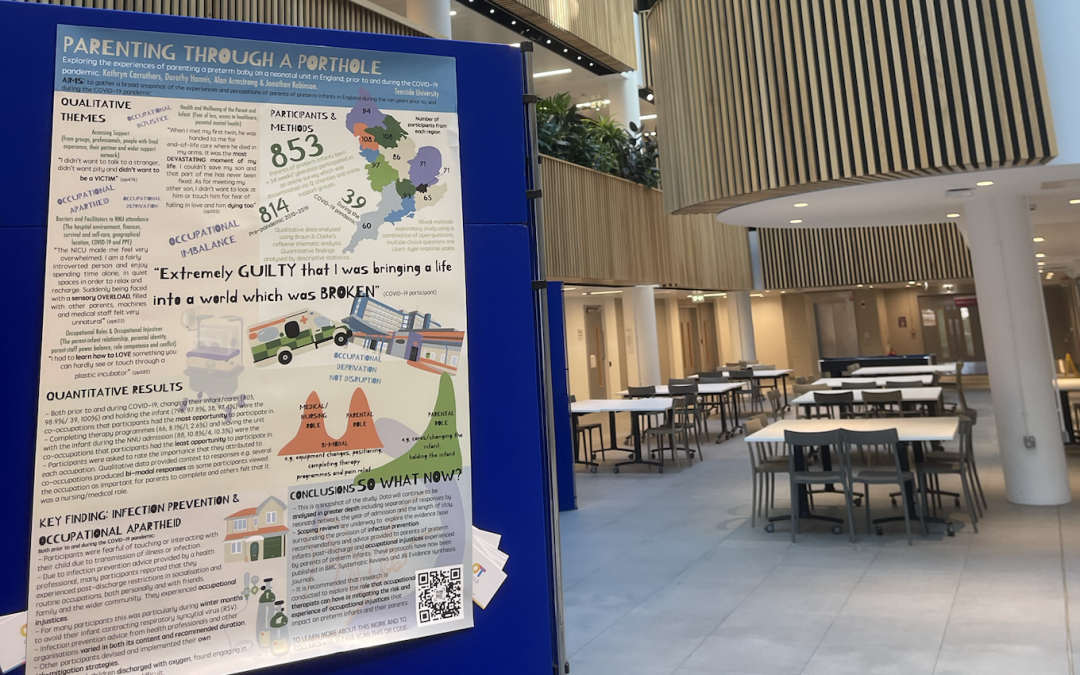Aim
The survey aimed to gather a broad snapshot of the experiences and perceptions of parents of preterm infants in England during the ten years prior to, and during the COVID-19 pandemic. It aimed to explore, identify, and understand the ways in which the Neonatal Unit (NNU) admission, and pandemic, impacted on the occupational performance and perception of the parental role, and engagement in parent-infant occupations within the NNU.
Methods
Qualitative and quantitative data were collected via an online survey comprising of 52 items. Parents of infants, born at less than 34 weeks of gestation (< 34+0), admitted to a NNU in England, on or after 01/01/2010, were eligible to participate.

Results
853 eligible parents of preterm infants completed the survey (n=814 parents of infants admitted to a NNU pre-COVID-19, n=39 parents of infants admitted during the COVID-19 pandemic). Qualitative themes discuss parental access to support (for example, lived-experience support); occupational roles (for example, occupational injustice, identity and the parent-staff power differential); the health and wellbeing of parent and infant (for example, fear of loss and occupational imbalance); and barriers and facilitators to NNU attendance (for example, financial implications).
Conclusions
Preliminary results of this study report a wide variation between parental involvement opportunities due to local policies, individual staff processes and hospital facilities. Parental preferences regarding their role and engagement with their infant should be considered. Post-discharge infection prevention and control advice and guidance (both prior to and during the COVID-19 pandemic) was inconsistently provided and varied in content and by source. Research is required to further understand this reported variation alongside the underpinning infection prevention and control evidence base. The social, emotional, and economic impact of the advice and guidance provided on parents/carers and their infants should be considered. Exploration of parent-initiated risk-mitigation strategies is also recommended.


